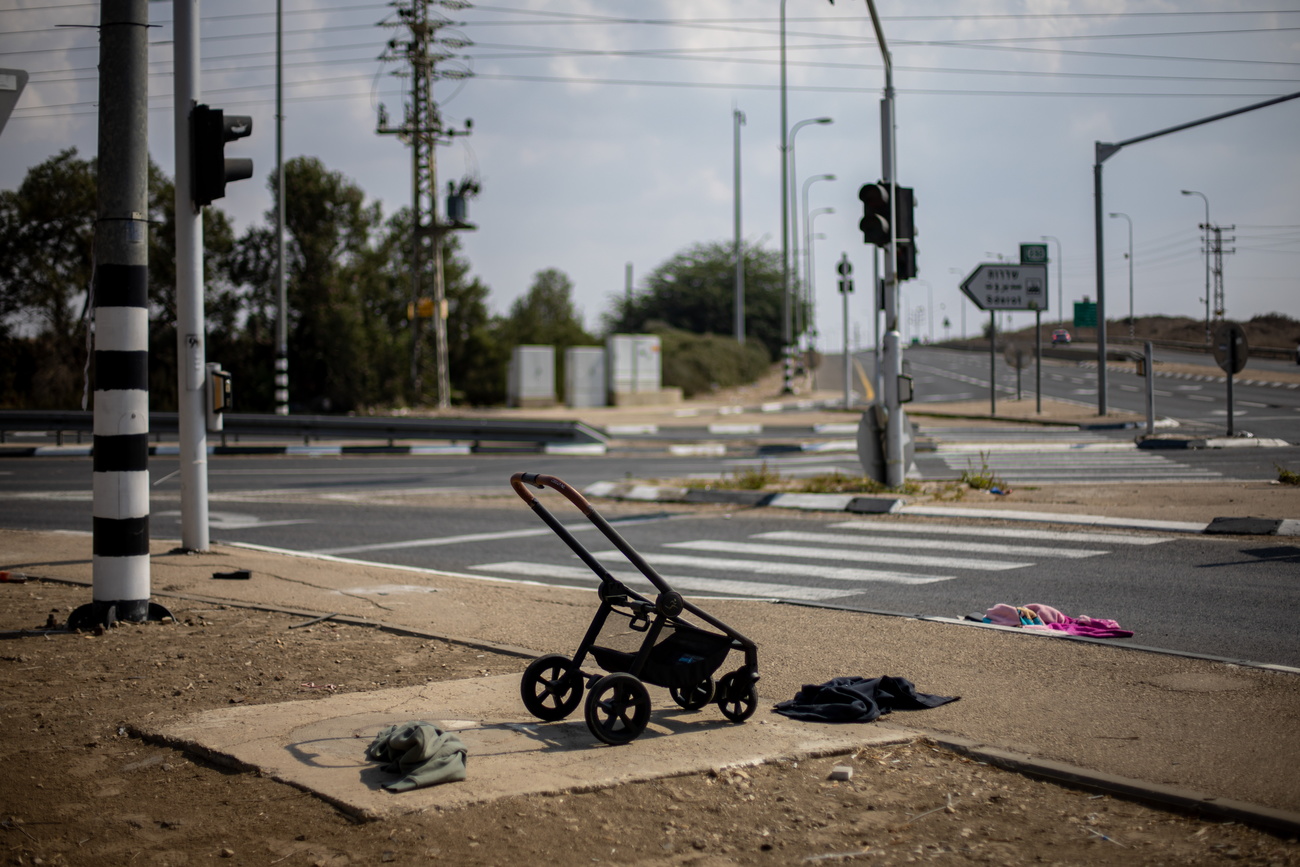
Key Swiss security post filled after difficult recruitment process

Switzerland has appointed Markus Mäder as the next head of the State Secretariat for Security Policy, after a long and difficult search for the right person to take the job.
Mäder, who was previously head of Switzerland’s International Relations for Defense, will take on the role at the start of next year.
+ What lies ahead for the Swiss political landscape?
The 52-year-old historian and brigadier, who has a doctorate, will assume overall responsibility for the State Secretariat for Security Policy (Sepos). With around a hundred employees, it is intended to ensure a coherent security policy and strengthen security in the country.
Mäder knows security policy very well, both from a civilian and military perspective, Defense Minister Viola Amherd told the media in Bern on Friday. Thanks to his training as a defense attaché, the militia officer also has international experience.
Mäder has worked in Swiss security policy for more than 25 years in his professional life. In addition to positions in academia and at federal headquarters, he also represented the country’s security policy interests abroad.
Since 2016, he has been working on the army staff to create the conditions for the army’s training cooperation with foreign countries, for international operations and for relations with foreign armed forces.
Mäder’s new main task includes strengthening cooperation with neighboring countries, other EU countries and NATO. “I am convinced that Switzerland needs to prepare even better for new and additional threats,” he said. These included pressure attempts and open military violence.
Mäder’s deputy will be Pälvi Pulli. She has been head of security policy in the Defense Department since 2018. She will head the strategy and cooperation department at Sepos.
Long-standing ambassador Jean-Daniel Ruch was originally intended to be the top security chief. A few weeks after his presentation, however, it became clear, according to the media, that he could be open to blackmail because of allegations about his private life. He withdrew his application, forcing Amherd to look for a new candidate.
Mäder doesn’t see himself as a second choice. “I am unencumbered,” he said in response to a journalist’s question. He doesn’t look backwards, that doesn’t interest him. He is focusing on the challenges of his new job and wants to complete the task as well as possible.
Mäder did not apply for the job himself, Amherd explained. He was approached by the recruitment committee. “I didn’t originally apply because I was very satisfied and busy in my job this year. I didn’t have time to systematically focus on my professional development,” said Mäder.
Mäder’s appointment came ten days before the job begins on January 1. Amherd denied a hasty appointment. They gave themselves enough time. The field of candidates in Switzerland for this job is “clear”. They proceeded “carefully”. “We found the best.”
Amherd said it could happen that a candidate who had already been appointed withdrew. “It’s not the end of the world.” Now we have found a good solution. “That’s what matters.”
Mäder worked as a research assistant at the Research Center for Security Policy at ETH Zurich from 1997 to 2001. During this time he also worked in the general staff and as a staff and liaison officer as part of a military peacekeeping mission in the KFOR in Kosovo.
He then worked as a security policy advisor and deputy head of armed forces and armaments planning in the Directorate for Security Policy in the Defense Department until 2007. He was then deployed as deputy military representative at the Swiss mission to NATO in Brussels until 2010.
From 2011 he was deployed as a Swiss defense attaché for Pakistan, Afghanistan and Iran for four years. Mäder has additional master’s training in national security strategy.
This news story has been written and carefully fact-checked by an external editorial team. At SWI swissinfo.ch we select the most relevant news for an international audience and use automatic translation tools such as DeepL to translate it into English. Providing you with automatically translated news gives us the time to write more in-depth articles. You can find them here.
If you want to know more about how we work, have a look here, and if you have feedback on this news story please write to english@swissinfo.ch.

In compliance with the JTI standards
More: SWI swissinfo.ch certified by the Journalism Trust Initiative













































You can find an overview of ongoing debates with our journalists here . Please join us!
If you want to start a conversation about a topic raised in this article or want to report factual errors, email us at english@swissinfo.ch.